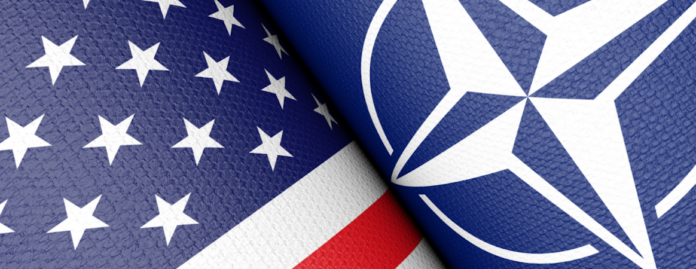Author: Marc Trachtenberg
Affiliation: University of California at Los Angeles
Organization/Publisher: International Security, MIT Press
Date/Place: Jan 1, 2021/USA
Type of Literature: Academic Journal article
Number of Pages: 42
Link: https://direct.mit.edu/isec/article/45/3/162/95270/The-United-States-and-the-NATO-Non-extension
Keywords: NATO, US Hegemony, Russia, USSR, Eastern Europe, Spheres of Influence
Brief:
This article conclusively proves that the United States informally promised the Russians in 1990 that Eastern Europe would remain under a Russian sphere of influence. In February 1990, then US Secretary of State James Baker promised Soviet leader Mikhail Gorbachev that if Germany remains in NATO, “there would be no extension…one inch to the east.” In 2008, Gorbachev stated that the Americans “promised that NATO wouldn’t move beyond the boundaries of Germany after the Cold War but now half of central and Eastern Europe are members, so what happened to their promises? It shows they cannot be trusted.” Gorbachev’s assessment of Western intentions has become enshrined in official Russian grand strategy. In 2014, Putin reiterated Gorbachev’s view when he said that Western leaders “lied to us many times, made decisions behind our backs, placed us before an accomplished fact. This happened with NATO’s expansion to the East, as well as the deployment of military infrastructure at our borders.” The re-escalation of tensions in the Ukraine is a sore reminder that Russian leadership has not only taken note of broken promises, but intends to do everything in its power to check Western power in order to remind the West that we live in a realist multipolar world. The Russians may have believed in a globalized liberal order for a moment but their participation in the liberal order only proved their worst fears about US intentions. The author of this article walks through documented history in order to understand if and when the US gave Soviet leaders assurances in order to convince them to reel back military presence in Eastern Europe. Two points surrounding Western assurances are debated in the literature: scope and force. Were assurances provided by Baker and others only about Germany or Eastern Europe more generally? The author argues there is no doubt that the assurances apply to all of Eastern Europe. Second, do verbal assurances in international affairs have any binding force? Many American diplomats have argued that since nothing was signed, the promises amount to no deal. The author argues that while that may be true, such a claim does not stand in terms of all the deals struck between the two powers over the course of the Cold War. In many instances verbal assurances were taken as binding agreements. Even if there were no written agreements, a high-level diplomatic agreement, even verbal, has political weight and consequences. The author concludes on a more conciliatory note in acknowledging that there was bad faith in the fact that goals changed, but this did not mean that the US deliberately misled the Soviet Union. The reneging on the 1990 assurances regarding NATO expansion convinced Russian elites that participation in a liberal order only means submitting to US interests and nothing else.
By: M. Üveys Han, CIGA Senior Research Associate




